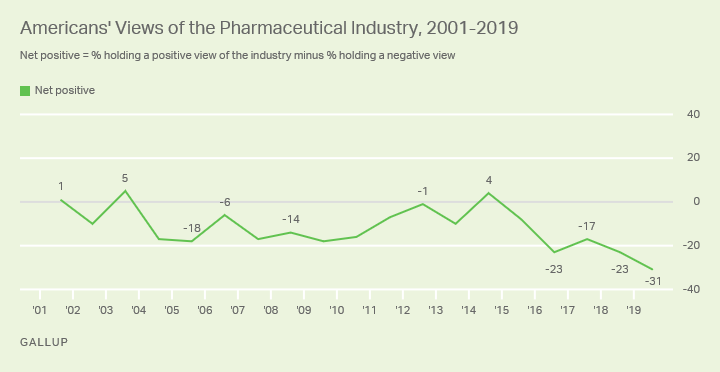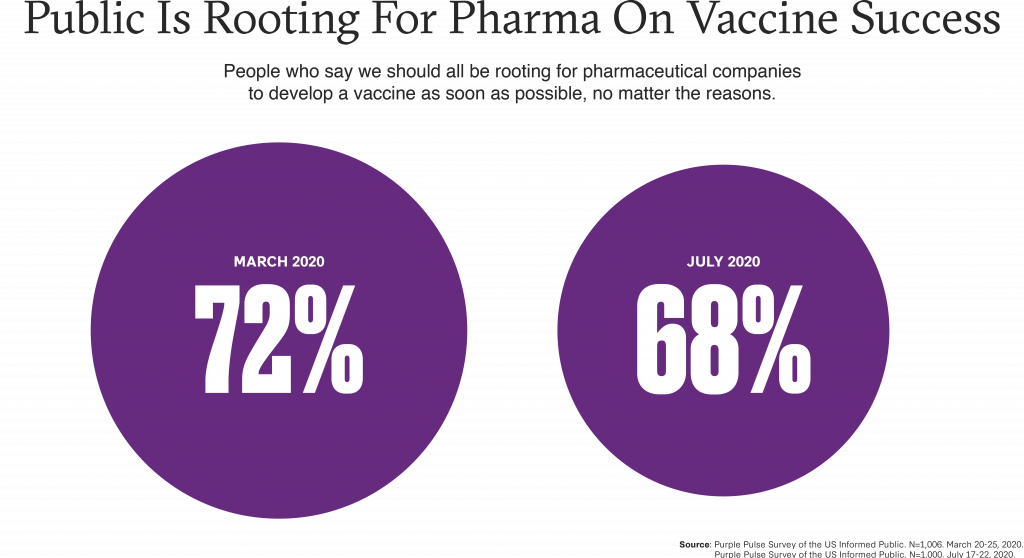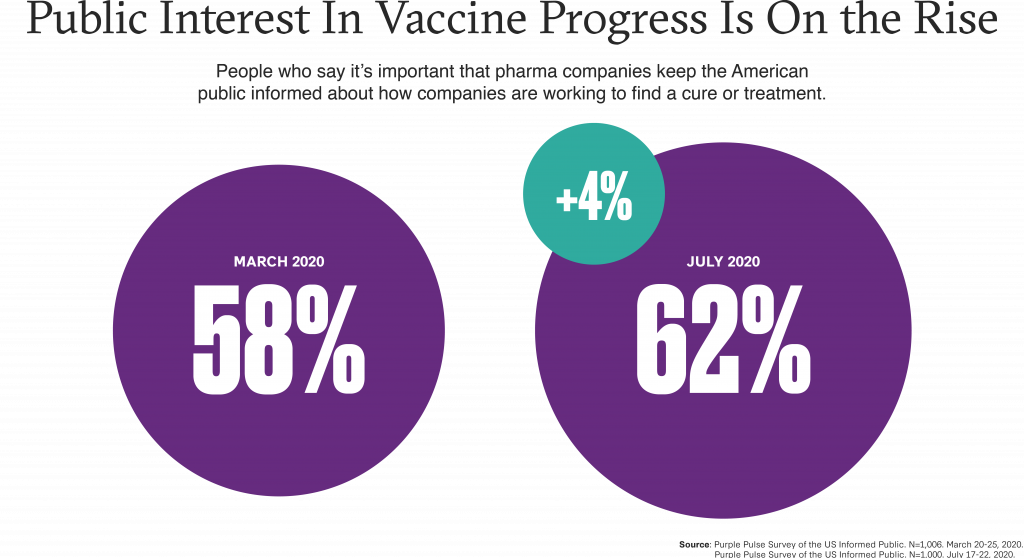Reputation is often viewed as something that happens to you, not something you can actively shape. Too often, companies begin managing their reputation only when crises occur, or critic voices attract their attention.
We know that always-on reputation management can help companies manage and stay ahead of emerging reputation issues, so they don’t turn into crises. A central element of that is proactive storytelling.
When companies fail to proactively, consistently and continuously tell their story, they leave a void. And the danger then is that their critics and dissenting voices may fill that void in an attempt to take control of and determine the prevailing narrative.
Consider the pharmaceutical industry, which has been navigating intense negative perceptions for decades. There has been a consistent battle to shape the narrative around the pharma industry’s work and motives — from innovation to drug prices. The reality that public opinion on pharma is consistently lower than any other industry or business sector in the U.S. — including the federal government — isn’t new or surprising.

Source: Gallup
Since COVID-19 began, the pharmaceutical industry has been under a persistent spotlight. People want a vaccine. They want treatments. They want tests. And most of all, they want hope. It’s in this time – this rare moment – when the public is actually rooting for the pharmaceutical industry.
What We Saw in March
- 72% of the informed public agreed that “we should be rooting for [pharma companies] to develop a vaccine as soon as possible.”
- Almost 6 in 10 believed a vaccine would be available to the public before the end of 2020.
- The majority signaled an openness to communication from the industry during this time, as 58% said “it’s important to keep the American public informed about how companies are working to find a cure or treatment.”
Qualitative research that we have completed across a range of clients further reinforces the finding that pharma companies have permission to communicate about their progress – even if that progress is incremental and incomplete. In our research, people have told us they are looking for assurance that pharma companies are in the game and working relentlessly toward a solution.
In other words, pharma companies have a compelling story to tell, and the public is more than open to hearing it. But while the industry currently enjoys greater permission to tell its story, pharma companies will find themselves once again facing a battle to shape and control their narrative against a backdrop of heightened expectations.
What We See Today
- Expectations of when a vaccine will come to market has dramatically flipped: now a majority expect a vaccine will not be ready until 2021.
- We see a slight dip in those rooting for pharma (68%, down -4 since March), though a majority still hold this view.
- One-third of the informed public now believes that pharmaceutical companies are “taking advantage of this crisis to make profits.”
And yet, while general optimism about the timing of the vaccine and about the industry overall might be waning, the number of people who say it’s important that pharma companies keep the American public informed about how companies are working to find a cure or treatment has risen since March (62%, up +4 from March).


Right now, with these increased expectations, a void exists. One-third of the Informed Public has not heard about any one particular pharmaceutical company working to develop a vaccine, treatment or test, and the average recall across 15 named companies currently working on a vaccine is only 15%. And while this gap in awareness and expectations points to a void that needs to be filled, it also represents a significant opportunity for pharma companies: a majority (56%) say they would feel better about companies if they knew they were working toward “affordable treatments and vaccines to treat the coronavirus as quickly as possible.”
So what does all this mean?
It is a rare moment in time when the pharmaceutical industry enjoys both public optimism about its work and public demand to hear more about it. It is rarer still when the spotlight on this industry is not being controlled by critics intent on exposing its perceived faults. At this moment in time, the spotlight on this industry is an invitation from the public to take the stage and proactively tell its story. Pharma companies that are not actively talking about their work to make treatments and vaccines available and accessible should start. Those companies that feel they have already stepped onto the stage, likely can and should do more to rise to this moment and answer the public’s call for more information. And whether they are just starting or have been telling their story throughout the pandemic, even when they think they have said enough – they should share as much as they can to fill the void.
Purple Pulse Survey of the US Informed Public. N=1,006. March 20-25, 2020.
Purple Pulse Survey of the US Informed Public. N=1,000. July 17-22, 2020.
PURPLE PULSE SURVEY OF THE US INFORMED PUBLIC. N=847. SEPTEMBER 30 – OCTOBER 2, 2020.
By Ashley Gibaldi | Managing Director | ashley.gibaldi@purplestrategies.com
Purple is actively partnering with companies and industries to navigate the ever-changing COVID-19 pandemic and prepare for the future that will come after, bringing deep experience helping the world’s best-known companies navigate the world’s toughest challenges. Please reach out to author Ashley Gibaldi or any member of our Purple team to let us know how we can support you.

 Brad Dayspring Joins Purple Strategies as Executive Director
Brad Dayspring Joins Purple Strategies as Executive Director  Celebrating Growth and Leadership at Purple
Celebrating Growth and Leadership at Purple  Has the narrative lost the story?
Has the narrative lost the story?  Caught in the Middle: What Immigration Policy Means for Busi...
Caught in the Middle: What Immigration Policy Means for Busi...